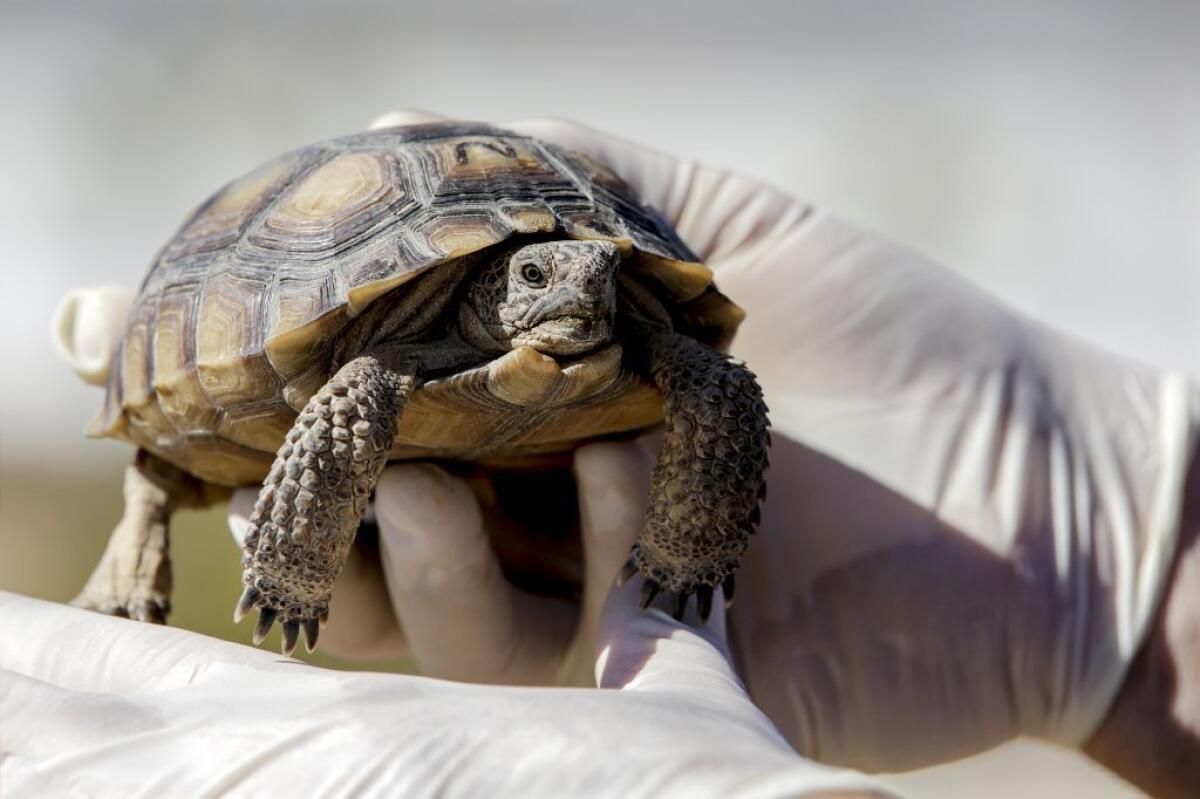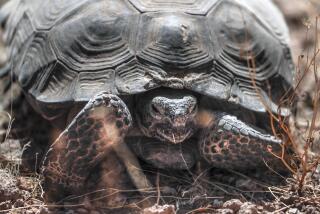Marine Corps postpones plans to translocate 1,185 tortoises for training grounds

One of 1,185 desert tortoises that was set to be translocated in preparation for expanded Marine Corps exercises near Twenty-Nine Palms, Calif.
- Share via
The Marine Corps base at Twenty-Nine Palms said Friday it had postponed plans to move 1,185 tortoises off prospective combat training grounds until wildlife agencies can determine whether the plan complies with the Endangered Species Act.
The $50-million tortoise translocation effort was expected to launch this month as mitigation for congressional approval to expand the Marine Corps’ Air Ground Combat Center by about 165 square miles in prime tortoise habitat.
Preparations for one of the largest tortoise translocations ever attempted were halted after the U.S. Fish and Wildlife Service and U.S. Bureau of Land Management asked for more time to review the plan to move the reptiles onto nearby public lands.
The agencies’ requests followed the filing of “an intent to sue” notice filed by the Center for Biological Diversity for alleged violations of federal wildlife laws.
MORE: Get our best stories in your Facebook feed >>
The center said that new information, not available at the time a biological opinion on the plan was prepared by the Fish and Wildlife Service, showed that the effects of translocation would be far more detrimental to tortoises than anticipated.
For example, the center said, the latest research shows survival rates of under 50% among tortoises displaced in previous efforts. In addition, the population of desert tortoises in the west Mojave region slated for translocation is already in steep decline.
Beyond that, relatively good rains over the last few months in the drought-stricken region have produced an abundance of forage for the mostly vegetarian reptiles, the center said.
“Under existing conditions,” said Ilene Anderson, a biologist and spokeswoman for the center, “the impact to the west Mojave population of tortoises would have been catastrophic had this translocation proceeded according to plan.”
“The military, like everyone else,” she added, “must uphold the laws of the land.”
Follow me @LouisSahagun for more fascinating stories
ALSO
Dramatic images show El Niño beginning to rescue California from its drought
Myth busted: Vipers aren’t the fastest snake in the world. Others are just as fast
Two active Southern California faults may cause a Big One by rupturing together







